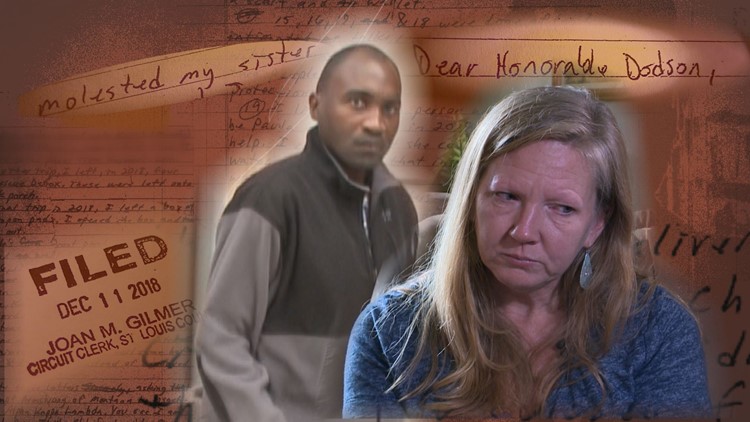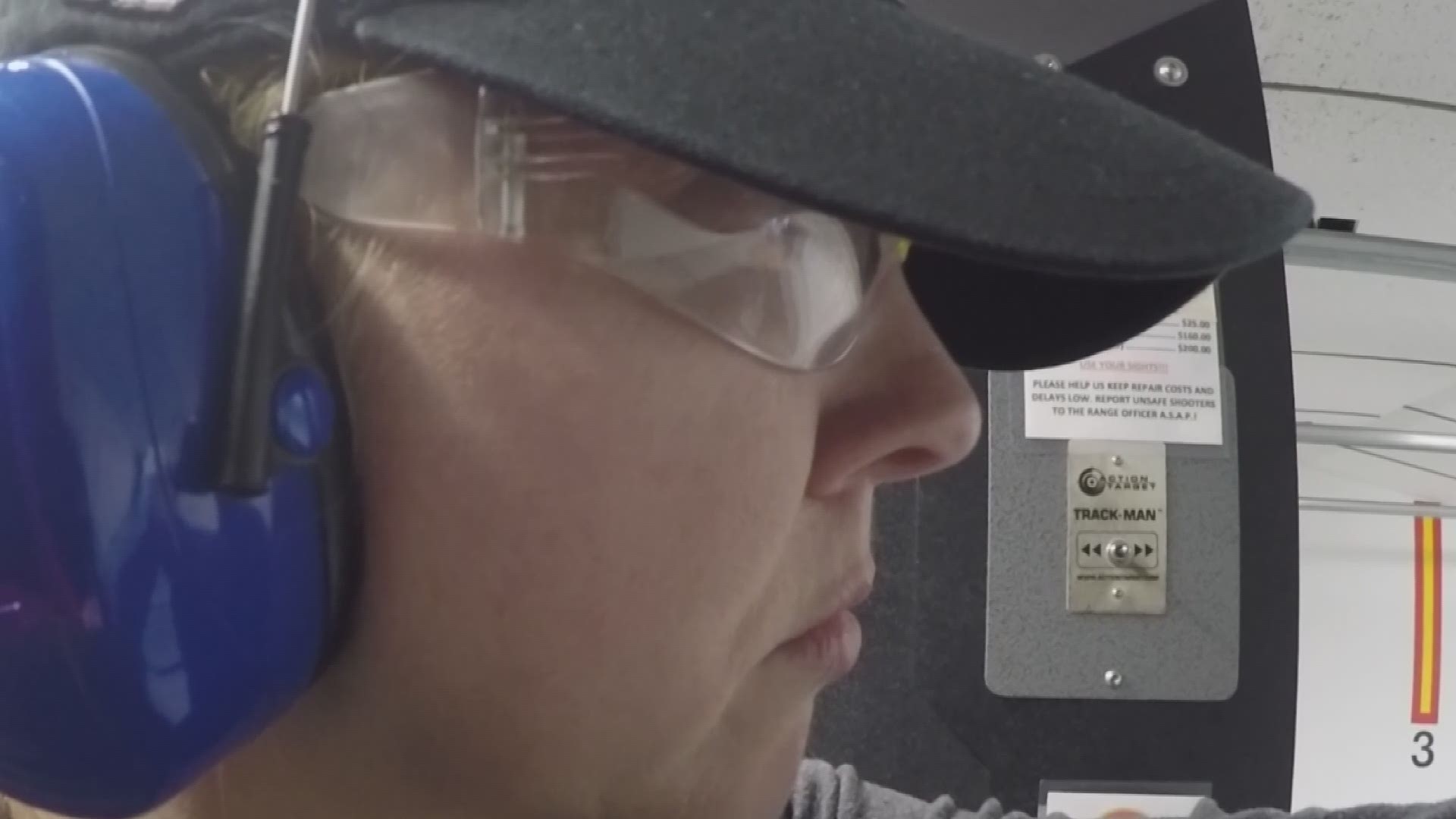MARYLAND HEIGHTS, Mo. — An update in a stalking case the 5 On Your Side I-Team has been covering for weeks.
A Maryland Heights mother's alleged stalker, Brandon McCormick, will now be monitored in St. Louis County’s mental health court.
Paula Frey says McCormick began stalking her and her preteen daughter after a high school reunion in 2009.
In a series of investigations, the I-team uncovered how neither police, nor the courts had taken action to protect Frey.
The I-Team uncovered dozens of graphic letters McCormick had sent to the Judges overseeing Frey’s protection orders. In the letters, he admits to stalking Frey and her daughter. He also confesses to other crimes like molesting his young relatives. After presenting the letters to police, Maryland Heights law enforcement tell the I-Team they are now investigating the contents of those letters.
On Nov. 22, Judge Michael Burton told the court he had not seen those letters. The I-Team found supreme court rules prohibit judges from considering communication from individual parties in a court case. Judge Burton would be able to see the letters if they are officially introduced in court by either the prosecutor or defense attorney.
Now, if McCormick disobeys the judge or the mental health professionals overseeing his care in the mental health court- he will immediately be sent to jail. Judge Burton told McCormick he could also face penitentiary time if he does not follow the court’s orders and continues to violate Frey’s protection orders. McCormick’s father also indicated he is considering inpatient care for his son, which whom he lives.
FOUND WANDERING
The mental health court referal comes after McCormick was found to have violated the conditions of his court ordered house arrest and GPS monitoring. A representative from EMASS monitoring service testified in court Friday that McCormick was caught wandering in and out of his neighbors backyards between midnight and 4:30 a.m. on Nov 3.
Frey says she’s relieved McCormick will finally be getting the help he needs.
In a statement, Anne Heinrich, vice president of development at Mental Health America of Eastern Missouri, wrote that the stigma surrounding mental illness can also harm people who need help. MHA-EM sent these facts about schizophrenia and mental illness:
• Schizophrenia is a serious disorder which affects how a person thinks, feels and acts. Someone with schizophrenia may have difficulty distinguishing between what is real and what is imaginary; may be unresponsive or withdrawn; and may have difficulty expressing normal emotions in social situations.
• The vast majority of people with schizophrenia are not violent and do not pose a danger to others. Schizophrenia is not caused by childhood experiences, poor parenting or lack of willpower, nor are the symptoms identical for each person.
• While there is no cure for schizophrenia, many people with this illness can lead productive and fulfilling lives with the proper treatment.
• The vast majority of people with mental health problems are no more likely to be violent than anyone else. Most people with mental illness are not violent and only 3% to 5% of violent acts can be attributed to individuals living with a serious mental illness.
• In fact, people with severe mental illnesses are over 10 times more likely to be victims of violent crime.
If you or a loved one need help dealing with mental illness, there are resources available. These 24-hour Access Crisis Intervention hotlines are available to Missourians in these counties:
For St. Louis City, St. Louis County, Jefferson County, and more, call Behavioral Health Response at 1-800-811-4760.
For St. Charles County and more in our region, call Compass Health ACI Hotline at 1-800-833-3915.
You can find a list of Community Mental Health Centers on the state Department of Mental Health website.
Illinois residents can reach their nearest Community Mental Health Center by calling 1-800-843-6154. The Illinois Department of Human Services also offers a list of crisis mental health partners arranged by city.




